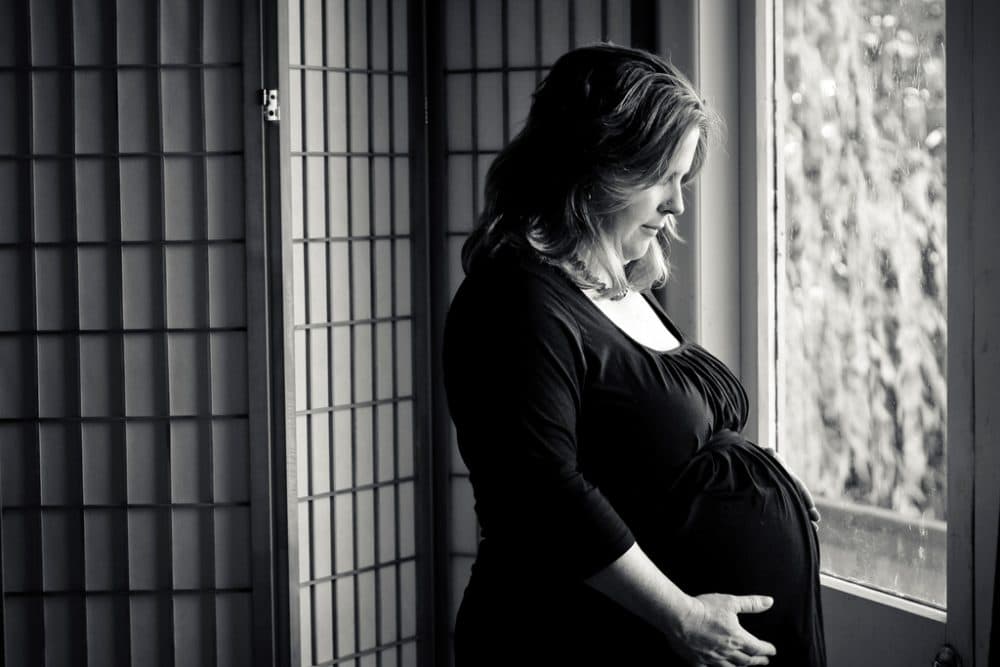Advertisement
Opinion: Why Gut A Program That Truly Helps New Mothers?

By Claudia M. Gold, M.D.
Guest Contributor
As any parent knows, caring for an infant is a 24/7 job. Contrary to the idealized “myth of motherhood” — which usually involves a quick, seamless return to pre-pregnancy weight, emotions and all-around functionality — there is no “schedule” to be had. Life has officially turned upside down.
All kinds of research suggest that new moms need help.
But in our culture today, where extended family may be far away, where spouses often return to full-time work almost immediately after the birth, mothers may be very much alone in the task of caring for a new baby. Mother-baby groups have a critical role to play in filling that void.
I have seen these groups in action working as a consultant to the William James College Freedman Center. When mothers feel supported and listened to, extraordinary thing happen: they share experiences not only about the lack of sleep and ability to take a shower, but also fears, anxieties, self-doubt, sadness and even depression. By the end of these groups, many mothers developed powerful, sustaining bonds with each other and interact with their babies with new confidence and joy.
A particularly innovative Massachusetts-based program for mothers is now at risk.
Massachusetts Child Psychiatry Access Project for Moms is a collaboration between the Massachusetts Psychiatry Access Project and MotherWoman, an organization that offers a network of groups as well as training for group leaders and seeks to make these groups available to mothers all across the state.
The program has its roots in a special legislative committee chaired by Representative Ellen Story. While at first the focus of the commission was to implement statewide screening for postpartum depression, it quickly became clear that such a step was meaningless without first having resources in place to help mothers identified by the screening.
That is where MCPAP for Moms comes in to play. In collaboration with William James INTERFACE referral service, when a mother is struggling, she can find support that is available close to home and right away. When a new mother feels alone, scared and overwhelmed, a three-month- or even a three-week-wait is unacceptable. She needs help today.
MCPAP for Moms offers a unique constellation of services: it offers toolkits and training for primary care clinicians — obstetricians, pediatricians and family practitioners, many of whom now do not know where to turn when they see a mom struggling with postpartum depression and/or anxiety. Second, it helps mothers connect with help — individual clinicians experienced in treating perinatal emotional complications as well as groups — right away. And last, MotherWoman has a growing network of support groups and trainings for group leaders so that the service can extend throughout the state. So, it's a whole safety net that involves many things.
"I was so overwhelmed and stressed as a new mom that I didn't know what to do and felt like a failure. Without MCPAP for Moms I don't know where I would be today," said one postpartum mom, Amanda Martin. "I am so grateful for them helping me get the help I needed to feel better for me and for my family."
Liz Friedman, program director for MotherWoman says this comprehensive approach "fills a huge gap...mothers in Mass. suffering with postpartum depression and anxiety are beginning to receive the help that they critically need – a doctor who knows how to help them, a mental health clinician who has been trained in perinatal mood disorders, a support group in their community. They now have a place to turn...After only 10 short months that this program has been in place, we are making a difference to mothers..."
Since its launch in July 2014, MCPAP for Moms has trained 75 obstetrical practices and served over 459 women.
The program was to go from partial implementation to full implementation this fiscal year. But sadly, the $500,000 needed for MCPAP for Moms was not even included in the latest state budget.
How fitting that this debate is unfolding in the week around Mother’s Day. It's worth noting that a newborn baby’s brain makes as many as 700 new connections per second. I believe these programs are critical to the healthy physical and emotional development of the next generation.
If the MCPAP for Moms funding can be re-instated (together with the pilot program already approved by the House) and approved by the Senate and Governor Baker, it will be a great moment for not only mothers and babies but also for families — now and into the future.
Claudia M. Gold is a pediatrician and author of Keeping Your Child in Mind: Overcoming Defiance, Tantrums and other Everyday Behavior Problems by Seeing the World Through Your Child's Eyes.